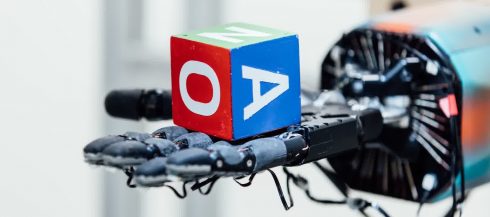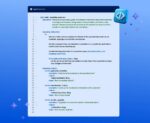
OpenAI has trained a human-like robot hand to manipulate physical objects using a system called Dactyl. The system was trained completely in a simulation and adapts to real-world physics. According to OpenAI, Dactyl leared from scratch using the same reinforcement learning algorithm as OpenAI Five.
The results of this project demonstrate that it is possible to train agents in a simulation and have them solve real-world problems without having to provide an accurate model of the world, OpenAI explained.
“This project completes a full cycle of AI development that OpenAI has been pursuing for the past two years: we’ve developed a new learning algorithm, scaled it massively to solve hard simulated tasks, and then applied the resulting system to the real world. Repeating this cycle at increasing scale is the primary route we are pursuing to increase the capabilities of today’s AI systems towards safe artificial general intelligence,” the team wrote in a post.
Git LFS 2.5.0 now available
Git LFS, an open-source Git extension that is used for versioning large files, has released a new version, 2.5.0.
The latest version includes three new migration modes as well as updated scripts and programs that are used to develop on Git LFS. These new scripts and programs are designed to feel more familiar to open source contributors.
Chrome can now be launched in Google’s Daydream View
Google has introduced the ability to launch Chrome in virtual reality on Daydream, Google’s virtual reality platform built into Android. Those using Google Daydream View or the Lenovo Mirage Solo with Daydream with will now be able to launch Chrome from the homepage and browse any web page while in VR.
The company has added a few Daydream-specific features such as cinema mode, which optimizes web video for VR.
Apache Log4j 2.11.1 now available
Apache Log4j 2.11.1, the popular framework for logging application behavior, has been released, providing significant improvements over the previous release. It adds new modern features, including “support for Markers, lambda expressions for lazy logging, property substitution using Lookups, multiple patterns on a PatternLayout and asynchronous Loggers.”
It also removes the need to allocate temporary objects while logging.






